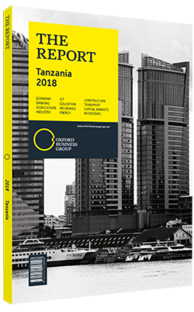Baghayo Abdallah Saqware, Commissioner, Tanzania Insurance Regulatory Authority (TIRA): Viewpoint

Viewpoint: Baghayo Abdallah Saqware, Commissioner, Tanzania Insurance Regulatory Authority (TIRA)
There are currently 31 insurance companies in Tanzania, and as the regulator of the sector we do not necessarily see the need for consolidation. Insurance companies have expressed, however, that there are significant barriers to consolidation, including the application of the 18% value-added tax (VAT). There is a charge on signed premiums, but none are levied when premiums are paid out or collected. In the past TIRA has attempted to work with insurance providers to tackle problems associated with VAT.
TIRA also maintains a running dialogue with insurance companies on the occurrence of non-remittances of total premiums that are paid in full by financial institutions, with the interest then paid off by brokers. That said, these barriers must be removed to improve access to insurance covers. More access will naturally translate into a steady increase in premiums over the medium and long term. In turn, access and coverage will protect a lot more people by covering dependants and families in urban areas and rural communities. Already, as of April 2017, the issuance of new cash-and-carry methods has aided rural residents who do not have access to a traditional savings account at a brick-and-mortar bank. Rather, they can pay their premium with cash or other non-traditional cashless methods, such as mobile money.
Coverage for public sector employees remains expensive, as the National Health Insurance Fund (NHIF) requires civil servants to pay 6% of their salary towards the fund. However, the NHIF does not meet the entire population. Private health insurance supplements insurance services for the uncovered population. It provides minimum health care cover or social health cover, which is vital for the well-being of 2m civil servants. TIRA is engaged, as part of its mandate, to oversee the investment policies of insurance companies, which is accomplished by evaluating the financial health of these companies. The regulator must also analyse market conditions to ensure that companies are operating in a fair environment, free from a monopoly or financial institutions that encroach upon insurance companies’ customers.
Nevertheless, if insurance companies can better unlock the successful framework that the bank network possesses, incredible opportunities will open up. There are two changes to new laws to help facilitate business. First, all imported goods should be insured with local insurers. Second, brokers previously were allowed to stay with the premium for 15 days, but now all premiums must be sent to insurers immediately.
Another industry constituent that still requires work is the implementation of the National Insurance Education Strategy, which is currently before the minister. TIRA is debating how best to capitalise on the implementation of the strategy and what incentives to offer. When it comes into effect it will open new avenues, in turn changing how insurance is handled in the country and the extent to which it benefits the economy. Its planned initiatives include innovative micro-insurance products that will be geared towards rural communities. Rural-based sessions have already begun in Mwanza and Oringa, among others. Government officials alongside insurance companies have visited a small sample of these communities in order to see how people perceive insurance. The most powerful motivating factor for lower-income households has been word of mouth; after seeing their neighbour sign on to a particular type of cover, they are more eager to do so themselves.
When it comes to the middle class, insurance companies have not yet recognised the full potential of this subset. Successfully accessing the middle class would filter accessibility down to the lower-middle and lower classes who currently perceive insurance as an optional luxury. TIRA is waiting for Financial Sector Deepening Trust (FSDT) and ministerial approval to grant $180,000 in funds. If TIRA receives the funds, it can start implementing a number of activities.
You have reached the limit of premium articles you can view for free.
Choose from the options below to purchase print or digital editions of our Reports. You can also purchase a website subscription giving you unlimited access to all of our Reports online for 12 months.
If you have already purchased this Report or have a website subscription, please login to continue.

